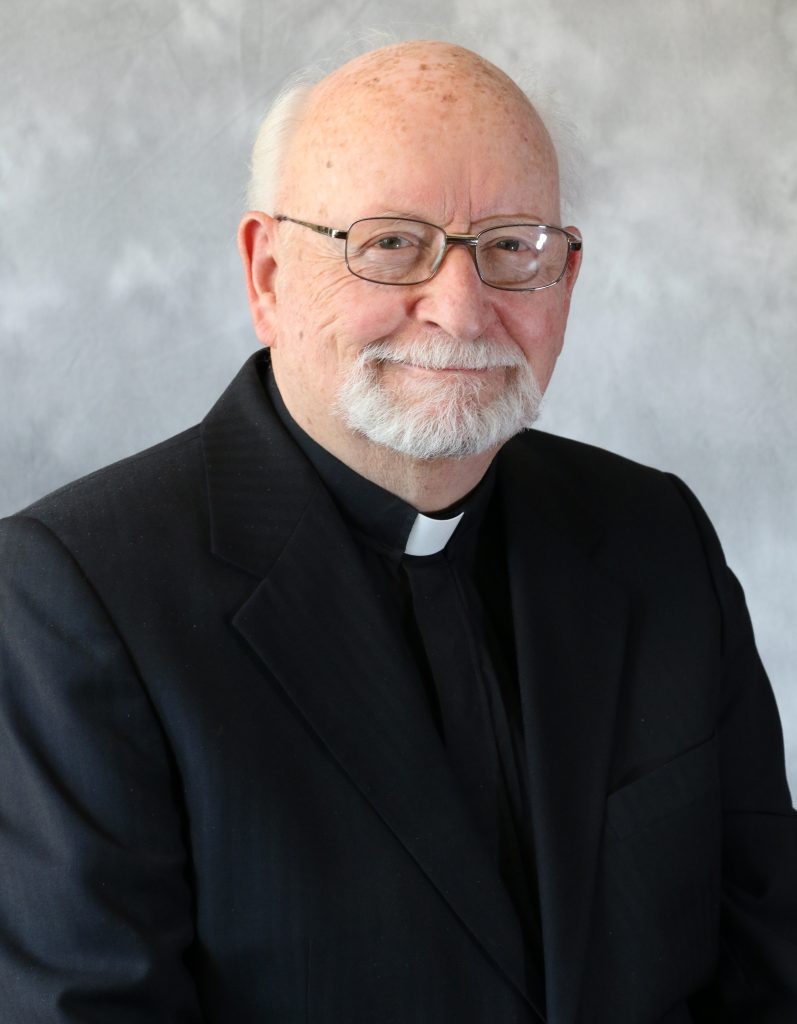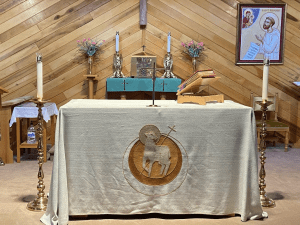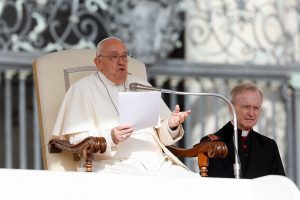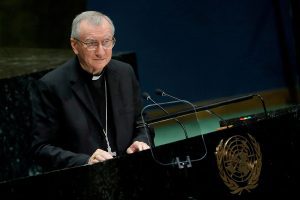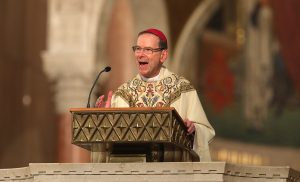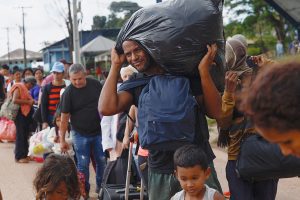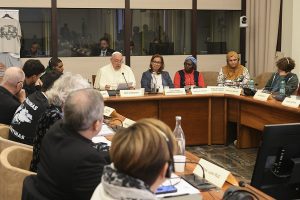BRUSSELS (CNS) – The Catholic Church must plead for forgiveness for the crime of the abuse of minors by its members and everything must be done to prevent such “a disgrace” from ever happening again, Pope Francis said.
He also called for clarity about the church’s role from the 1940s to 1980s in coercing unwed mothers to give up their newborns.
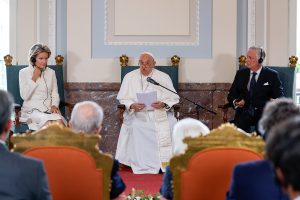
“Today, in the church, there is this crime” of abuse against minors, which the pope compared to King Herod’s massacre of the innocents, during a speech to Belgian authorities and local representatives at the Castle of Laeken in Brussels Sept. 27.
“The church must be ashamed, ask for forgiveness, try to resolve this situation with Christian humility” and do everything possible so “this will not happen again,” the pope said at the first event on his first full day in Belgium. He arrived late Sept. 26 after an eight-hour visit to Luxembourg.
Belgium is still reeling from ongoing evidence of decades of abuse and cover-up by church officials after an independent inquiry report on abuse was published in 2010.
While Belgium’s parliament continues to seek clarity into how investigations into the sexual abuse of minors in the Catholic Church were handled, a Dutch-language newspaper based in Antwerp, Belgium, recently reported that between 1945 and the early 1980s at least 30,000 babies were forcibly taken from their mothers, who had been sent to special homes by their parents.
According to the Dec. 13 report by Het Laatste Nieuws, some mothers have claimed they were forced to work, forbidden to communicate with the outside world, subjected to humiliation and sexual violence, and forcibly sterilized. Some of the adopted children, who are now adults, have claimed they cannot find the records of their adoptions or trace their biological mothers.
Adoptive parents also paid the church-run organizations for the adoptions, which ranged from between 6,000 and 30,000 Belgian francs at the time, which is around $670-$3,300 in today’s purchasing power.
Pope Francis said he was “saddened” to learn about a decadeslong practice of forcing unwed mothers housed in church-run institutions to give their newborns up for adoption.
“As the successor of the Apostle Peter, I pray to the Lord that the church will always find within herself the strength to bring clarity,” he said in his speech.
“In those poignant stories, we see how the bitter fruit of wrongdoing and criminality was mixed in with what was, unfortunately, the prevailing view in all parts of society at that time,” he said, with many believing in good conscience “that they were doing something good for both the child and the mother.”
The pope also warned that the practice of forcing unwed mothers to give up their children “still occurs in other cultures in some countries.”
Belgium’s King Philippe, Queen Mathilde and Prime Minister Alexander De Croo and hundreds of local leaders and representatives were present for the meeting.
King Philippe praised the pope for fighting against “all forms of injustice,” offering “hope and light to the most distant reaches of the human family” and for condemning and taking concrete steps against the “horrific acts” and “unspeakable tragedy of sexual abuse within the church.”
However, the king said, “it has taken far too long” for the cries of the victims of forced adoptions “to be heard and acknowledged” and to “‘repair’ the irreparable. We recognize the efforts of the church in Belgium in this regard, efforts which must continue resolutely and relentlessly.”
Prime Minister De Croo, acknowledging the importance of the church in Belgium’s history, customs and culture, also said, “We cannot ignore the painful wounds that exist in the Catholic community and in the civil society.”
“There is still a long way to go,” he said. Any form of “cover-up cannot be accepted,” victims have a right to the truth, they must be heard, “justice must take place” and “the church must clarify its past.”
“Human dignity is paramount and not the interests of the institution,” the prime minister said.
Seated between the king and queen in the grand hall of the castle, the pope insisted the church is seeking to address abuse “firmly and decisively by listening to and accompanying those who have been wounded, and by implementing a prevention program throughout the world.”
Departing from his prepared text, the pope said the crime of abuse in the church is a disgrace. “We all must get to work, ask forgiveness and solve the problem.”
The pope criticized those who deflect the church’s responsibility when they point to the large number of abuse cases in the world of sports and in schools, and to statistical evidence that most abuse occurs in families.
Just one case of abuse in the church, he said, is enough to be ashamed. “This is our shame and our humiliation.”

